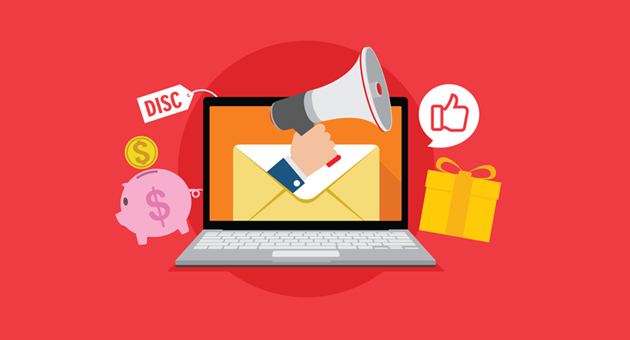
How to balance the needs of users with marketing objectives?
In an increasingly digital world, privacy has become a growing concern for consumers.
Unlimited access to personal data has led to concerns about the use of this information from companies and governments.
As privacy becomes a more relevant issue, companies must adjust their marketing practices to guarantee the confidence and loyalty of their customers.
- 1 How to balance the needs of users with marketing objectives?
- 2 Brief introduction about the importance of privacy
- 3 Changes in privacy and marketing
- 4 Strategies for marketing in the era of privacy
- 5 Building long-term confidence
- 6 Privacy and email marketing
- 7 Benefits of working properly marketing in the era of privacy
- 8 Conclusion
Brief introduction about the importance of privacy
In a world where technology surrounds us at all times, our digital footprints are constantly expanding.
This has led to growing concern for privacy, especially when it comes to collecting and using personal information.
Consumers have become increasingly aware of the importance of their online privacy, and expect companies to respect their rights.
Marketing in the era of privacy presents new challenges for companies, since they must find a balance between data collection and user privacy protection.
It is no longer enough to simply collect user information and use it in their marketing campaigns, but they should also consider how this information is aligned with the privacy expectations of their customers.
In this article, we will explore how changes in privacy and marketing have increased the importance of privacy in the marketing industry.
We will discuss strategies for marketing in the era of privacy, as well as the importance of building long-term relationships that will foster confidence.
In doing so, we hope to provide valuable information for companies that want to maintain an effective and respectful online presence of privacy.

Changes in privacy and marketing
The evolution of online privacy has been a hot topic in recent years.
With the growing amount of personal information available on the web, users have become increasingly aware of the importance of protecting their online privacy.
As a result, there have been significant changes in the perception of users on privacy and the way companies use their personal information.
Users now expect companies to manage their personal information in a responsible and ethical way.
The lack of transparency in the way websites and apps collect and use personal information has led to a loss of confidence in companies.
Therefore, companies must ensure that their privacy policies are clear and easily accessible to users.
The impact of these changes in privacy wass also felt on marketing
Companies now have to be more careful in the way they use user information in their marketing campaigns.
Consumers expect companies to respect their privacy and provide options for how their information is used.
In response to these changes, companies will have to adapt their marketing practices to ensure that user privacy is taken into account.
Companies that don’t follow these rules run the risk of losing the trust and loyalty of their customers.
Therefore, it is crucial that companies consider these changes in privacy and incorporate them into their marketing strategy.

Strategies for marketing in the era of privacy
Companies have to adopt effective strategies for marketing in the era of privacy.
Next, we will detail some of the most effective strategies that companies can use to ensure that they will respect the privacy of their users:
Compliance with privacy laws:
Companies should ensure compliance with applicable privacy laws in their country or region.
That means that they must understand the regulations and rules related to the privacy of the data and take measures to ensure that they are acting in accordance.
Obtaining the user’s consent:
Companies have to get user consent before collecting or using any personal information.
This consent should be explicit, clear and specific for each planned use of their personal or private information.
Demonstrate transparency and control to users:
Companies have to be transparent about how they use their user’s personal information.
This includes providing detailed information on the collection and use of information, as well as allowing users to control and manage their privacy preferences.
Ethical use of personal data:
Companies have to make sure to use private data following ethical and responsible principles.
This means that they should use the information only for the aims for which it has been collected and make sure they are properly protected.
Audience segmentation:
Companies have to use audience segmentation to ensure that personal information is only used for the right people.
This means that we can only send marketing messages to users who may be interested in a product or service.
Use of analytical tools:
Companies can use analysis tools to collect unidentifiable information about user behavior on their website or application.
These tools can help companies improve user experience and customize their marketing messages.

Building long-term confidence
Fostering long-term trust is crucial for the success of any company.
Here are some effective strategies to build long-term confidence:
The role of privacy in the process of fostering customer confidence:
Privacy is a key component that will help to build customer confidence.
Consumers expect companies to protect their personal data and use it responsible.
When companies deal with privacy with seriousness, customers are more likely to trust them.
Strategies to build long-term confidence:
Companies can adopt specific strategies to build long-term confidence with their customers. Some effective strategies include:
- Provide excellent customer service: companies have to ensure that their customers receive exceptional service. This means that they should be available to answer questions and solve problems quickly and efficiently.
- Be transparent when collecting and using private data: companies must be transparent in the way they process and use the personal information collected from their customers. This includes providing detailed information on how information is used and allowing customers to control their privacy preferences.
- Be consistent in the protection of privacy: companies must be consistent in their approach to protect customer privacy. This means that they have to take measures to guarantee the privacy of data in all areas of the company, including marketing, data collection and internal/external security systems.
- Listen to customers: companies have to listen to customers and respond to their needs and concerns. This may include creating surveys to understand customer preferences and use comments to improve their products and services.
- Be proactive in data protection: companies can be proactive in the protection of customer data. This may include taking additional measures to protect personal information, such as data encryption and improved security systems.
In summary, companies must deal with privacy as a priority and adopt effective measures to build long-term confidence with their customers. In doing so, they can ensure a solid base for success in the era of privacy.

Privacy and email marketing
In the specific context of email marketing, the protection of subscriber data is essential to guarantee the privacy and safety of users, as well as to comply with applicable privacy regulations.
To do this, there are a number of measures that companies must take to ensure that the data collected from subscribers will be protected at all times.
First, it is essential to obtain the proper consent of the subscribers before using their data for any marketing campaigns.
For this, it will be necessary to include visible subscription forms that clearly explain how the collected data will be used and offer double confirmation options during the subscription.
It is essential to use ethical and legitimate email lists to avoid spam and delivery of unwanted emails to subscribers.
Companies have to maintain their email lists clean and updated, and offer clear options for subscribers to request removal from the database in each newsletter they send.
In addition, it is important to publish a clear privacy policy that explains how the data will be used and how their privacy rights will be protected.

Benefits of working properly marketing in the era of privacy
Working properly marketing in the era of privacy can bring several benefits for companies, including:
Build customer confidence:
Privacy is an important factor to foster customer confidence.
If companies adequately protect user privacy, their customers will feel safer when providing their personal data and will have more confidence in the brand.
Boost customer loyalty:
When users feel safe and trust the brand, they are more likely to become long-term loyal customers and recommend it to their friends and family.
Comply with the regulations:
Companies that work properly with marketing in the era of privacy comply with applicable privacy regulations, which reduces the risk of fines and sanctions.
Avoid damage to reputation:
Companies that don’t properly protect users’ privacy will end up damaging their reputation and brand image. By properly working with marketing in the era of privacy, companies can avoid damage to their reputation and improve their brand image.
Improve audience segmentation::
By using public analysis and segmentation tools, companies can better understand user needs and preferences and offer them custom and relevant content and products.

Conclusion
In conclusion, marketing in the era of privacy presents new challenges for companies of all sizes.
As users become more aware of the importance of their online privacy, companies have to find a balance between data collection and user privacy protection.
In this article, we have explored how changes in privacy and marketing have increased the importance of privacy in the marketing industry.
We have also discussed effective strategies for marketing in the era of privacy, as well as the importance of building long-term confidence with consumers.
When complying with the privacy laws, obtaining the user’s consent, providing transparency and control, using user data ethically, segmenting the public and using analysis tools, companies can ensure that their marketing practices respect user privacy.
In addition, adopting effective strategies to build long-term confidence, companies can guarantee their success in the era of privacy.
Ultimately, privacy must be a priority for companies that seek to succeed in the current market.
By protecting user privacy and building a solid trusted base with customers, companies can guarantee an effective online presence, as privacy is vital for any marketing strategy.
